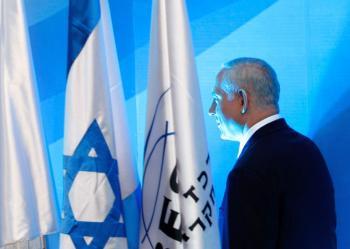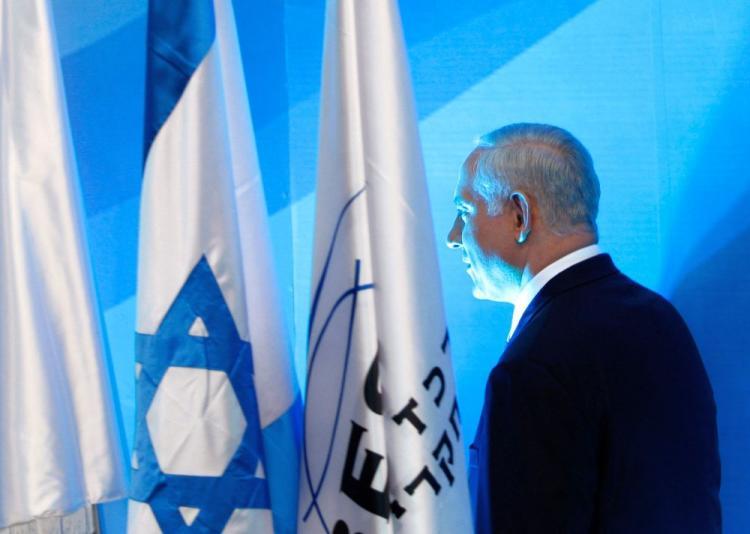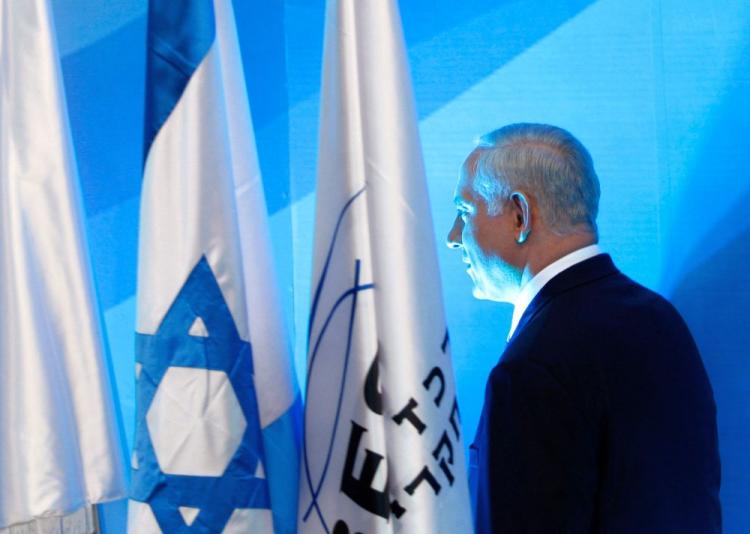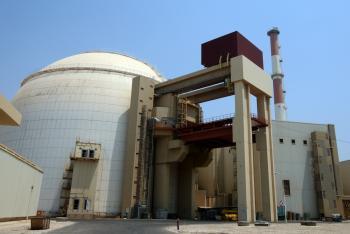For the first time, Israeli Prime Minister Benjamin Netanyahu has said he will support the founding of a Palestinian state, but stipulated a few preconditions. He also said that Jerusalem will not be divided.
Netanyahu opened his speech on Sunday at Bar Ilan University by talking about Israel’s desire for peace.
“Peace has always been our people’s most ardent desire,” he said in the address that was broadcast on radio. “Our prophets gave the world the vision of peace, we greet one another with wishes of peace, and our prayers conclude with the word peace.”
Netanyahu said that he fully supports the idea of regional peace that U.S. President Barack Obama is advocating. “I turn to all Arab leaders tonight and I say, ‘Let us meet. Let us speak of peace and let us make peace. I am ready to meet with you at any time. I am willing to go to Damascus, to Riyadh, to Beirut, to any place—including Jerusalem.’”
Netanyahu called for the Palestinians under the Palestinian Authority (as opposed to those in the Gaza strip under Hamas), to begin negotiations immediately without preconditions.
Netanyahu said that the Palestinians must acknowledge Israel as the nation-state of the Jewish people and refrain from violence. He said that previous territorial withdrawals by Israelis have not lessened the hatred.
“We evacuated every last inch of the Gaza strip, we uprooted tens of settlements and evicted thousands of Israelis from their homes, and in response, we received a hail of missiles on our cities, townhalls and children,” he said.
Demilitarization
Besides Palestinian recognition of Israel as a state of the Jewish people, another precondition Netanyahu addressed was demilitarization of the Palestinian territory.
“Without these two conditions, there is a real danger that an armed Palestinian state would emerge that would become another terrorist base against the Jewish state, such as the one in Gaza,” he said. “On a matter so critical to the existence of Israel, we must first have our security needs addressed,” he said.
During his speech, he repeatedly stressed that what he utters is the wide consensus within Israel.
By “demilitarized state,” Netanyahu means an entity without an army, without control of its airspace, and with effective security measures to prevent weapons being smuggled into it, and that will not be able to forge military pacts. He asks for the international community, led by the U.S., to assure those conditions.
Experts say that by acknowledging a future Palestinian state, Netanyahu seems to be trying to persuade President Obama to back down over the issue of building within settlements in the West Bank. Freezing of such building could highly endanger his right-wing coalition.
Netanyahu said that there is no intention of building new settlements or of expropriating additional land for existing settlements, but that “there is a need to enable the residents to live normal lives, to allow mothers and fathers to raise their children like families elsewhere,” meaning that building to enable what Israel calls “natural growth” must be allowed.
Regarding Jerusalem, Netanyahu said that it must “remain the united capital of Israel with continued religious freedom for all faiths.”
Responses from Palestinians and Jerusalem Post
Mustafa Al-Barghouti, a member of the Palestinian legislature and a political activist, said that Netanyahu’s speech was a great disappointment for the Palestinians. He said that after Obama’s speech in Cairo last week, Netanyahu should have shown greater flexibility.
“Netanyahu only talked about consolidating a system of apartheid,” he said, and added that each of the prerequisites for peace that Netanyahu stipulated are barriers for negotiations. He specifically mentioned Netanyahu’s objection to the return of Palestinian refugees to the pre-1967 Israel borders and the objection to a political compromise in Jerusalem.
Gil Hoffman, political affairs correspondent of the Israeli newspaper The Jerusalem Post expressed his view that the speech was a great breakthrough and a change in Netanyahu’s policy, noting that Netanyahu openly and publicly agreed to a Palestinian state along side Israel. Hoffman highlighted the fact that Netanyahu spoke in name of the Israeli political consensus, and not on his own behalf.
Hoffman argued that this was an answer to Obama’s speech in Cairo. “Obama’s policies are not just going against the opinions of the Israeli right wing, but against the Israeli consensus,” said Hoffman.
Text of Netanyahu remarks taken from government-issued translation.
Additional reporting by Gidon Belmaker






